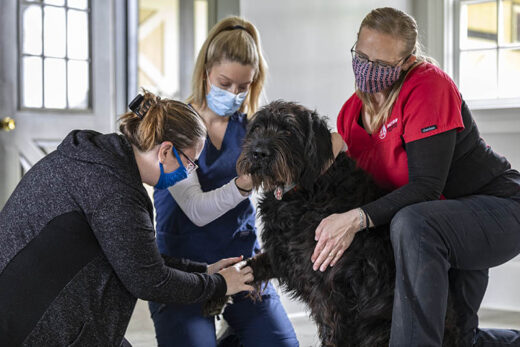Dental disease can be painful, expensive, and even life-threatening. Since cats don’t brush their teeth every day like we do, many of them will develop dental disease as early as when they are just 3 years old!
How does dental disease in cats develop?
There are over 400 different species of bacteria living in our cats’ mouths. Every few hours, especially after mealtime, remaining food particles in the mouth become digested by these bacteria and they start to form a layer on the tooth called a biofilm. Regular brushing helps to remove this biofilm. Since our pets do not brush their teeth every day, the biofilm hardens on top of their teeth and is called plaque.
Plaque can form within 24 hours without teeth brushing, which hardens, even more, to form tartar (also known as calculus) in as little as 3 days. This can also affect gums, and cause gingivitis. Gingivitis can be reversible with professional descaling, polishing and subsequent home care. If left untreated, the gums become detached from the tooth, forming ‘pockets’ which predispose to further plaque build up. This represents the first stages of periodontal disease. Over time, oral disease can spread these harmful bacteria to other parts of your cat’s body causing life-threatening heart, kidney and liver disease.
Top 10 signs and symptoms of dental disease in cats
We’ve put together this list of top 10 signs and symptoms of dental disease to watch out for so that you can prevent discomfort, pain and expensive vet bills:
Does your cat…
…have bad breath?
…have Brown or yellow teeth?
Is Dropping food when eating?
Is Losing weight?
Doesn’t like the mouth area being touched?
Is not grooming themselves?
Is eating from one side of the mouth?
…have missing or loose teeth?
..have red or bleeding gums or is drooling?
Chatter? Yawn excessively or grind their teeth? Or paw at their face?
Remember, cats are experts at hiding pain. So usually when they exhibit these common signs, the disease is advanced and needs medical attention. Any one or combination of these can be indicators of a visit to your veterinarian for a comprehensive oral health and treatment appointment.





